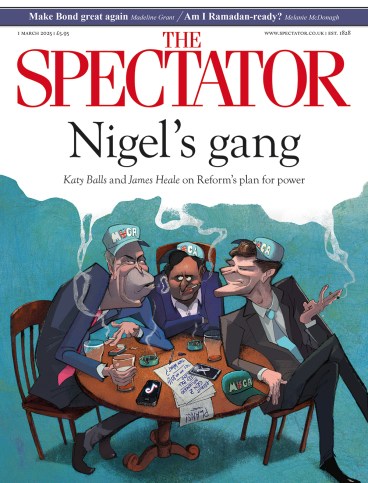
The Forcan Ridge off Glen Shiel can be a tricky place this time of year. There wasn’t a huge amount of snow, but the rocks in places were encased in ice. Without crampons, an ice axe and a head for what you are doing there are plenty of opportunities to fall to your death, but I didn’t. I bagged my hills, drove back to the holiday cottage where I was staying, had supper and turned in for an earlyish night. The only casualty was my phone which I had sat on while descending a rock, delivering the fatal blow to an already cracked screen. So I emailed my wife from my laptop instead, regretting that there would be no glorious photos today.
Just after midnight the phone started to ring. I fumbled with it but there was no way to answer it. Then it rang again, and again, and again. It didn’t take me long to work out what was going on. My wife hadn’t picked up the email and was frantically ringing me thinking I had gone missing in the hills. If she hadn’t done so already, she was soon going to ring the police. I was officially going to be a missing person – even if I didn’t feel terribly missing.
But how to head off the inevitable helicopter search and the ‘hiker goes missing’ stories? The obvious answer – at least to someone of my generation – was to find a telephone box, but the nearest one marked on my map was a ten-mile drive along a single-track road. Moreover, my map was more than a decade old, and the chances of the phone box still being there were remote.
I emailed our son and asked him to ring his mother, but he’d gone to bed. Surely, I thought, there must be a way to send a message to a phone from a laptop. There are several, it turned out. I could download WhatsApp on to my laptop, but before I could do that I would need to access my phone – obviously impossible. Alternatively, I could send a text message via email – except to do that I would need to know the ‘carrier code’ for my wife’s phone provider. After much searching, it transpired that there wasn’t one: the company didn’t offer that service.
While I was boning up on telecommunications, back home in Cambridgeshire things were moving fast. A young police officer arrived at our house. Without much subtlety, he was clearly already thinking ahead to the discovery of my body. Did I have any identifying scars or marks? But before the helicopter could be sent poking into the gullies below the Forcan Ridge, he wanted to know a bit more. There seems to be a standard procedure for missing persons, and it is one perhaps more appropriate for teenage girls who have run off with their friends, or indebted businessmen who have faked their own death, rather than someone gone missing in the hills. ‘I’ve got to build a picture,’ he told my wife, demanding first to see our texts and WhatsApp messages. That required her to give him a crash course in our private patois. No, ‘Guss Meurnik’ is not the name of a mountain; it means ‘Good Morning’. God knows what he made of ‘Clogpoppage is not a by me thing’ (translation: ‘I am still alive’).
These days, disappear off the radar for a few hours and you get the full Lord Lucan treatment
A word of advice: if you have anything incriminating on your phone, or you have been rude about your constituents on social media, don’t get reported missing. The officer was quickly on to my computer, demanding to know passwords. He wanted access to my bank accounts to see whether I had spent any money. I’m not sure how I was supposed to do that on the Glenelg peninsula, whose retail economy consists of a small shop which closes at 5 p.m. and a pub which is only open from Thursday to Sunday. While he nosed around my online life, my wife stood there asking how long someone could survive out on a hillside in freezing conditions – the Met Office mountain weather forecast was giving temperatures of –5°C on top of the Forcan Ridge, with a wind chill of –16°C.
I spent far too long trying to work out how to send a text message from a laptop. It was 1.30 a.m. before it occurred to me that I could email Police Scotland – although it warned that this was not for emergencies and I might have to wait 24 hours for a response. ‘I think my wife might have reported me missing…,’ I wrote in the subject line. That was the beginning of the end of the crisis – the message was picked up within an hour. Yet still, an hour and a half later, an officer was hammering on the door to check that it really was me who had sent the email – to check, in other words, that someone wasn’t trying to pull off an elaborate hoax. Only then was my wife informed that I had been found alive, and not on a mountain.
There are several morals to my three hours as a missing person. One is never to put your smartphone in your back pocket if you are scrambling over rocks. The old mobiles with proper buttons were robust, as was my old BlackBerry which once survived being scraped along yards of granite. But with a glass-fronted phone you are only one bash away from going incommunicado. Another is that if you’re worried you can’t contact someone by phone, check your emails.

But how we save emergency services from overload in an age of hyper-connectivity I’m not sure. While mobile phones are of course useful in emergency situations, they create the expectation that you will always be in touch – and sometimes you can’t be. When I was 18 I went Interrailing for a month. I had no agreed plan. Neither my parents nor anyone else had any idea where I was or what I was doing. And, remarkable as it might seem to younger people, no one seemed too bothered by the idea of anybody going wandering on their own for weeks.
These days, disappear off the radar for a few hours and you get the full Lord Lucan treatment. I am sure there are people alive now who wouldn’t be had they not been able to call mountain rescue (although you will be hard-pressed to find much coverage over the Highlands – it is easier to get a signal in the deserted interior of Iceland). All the same, I can’t help feeling we have lost something now that we are expected to keep constantly in touch.









Comments